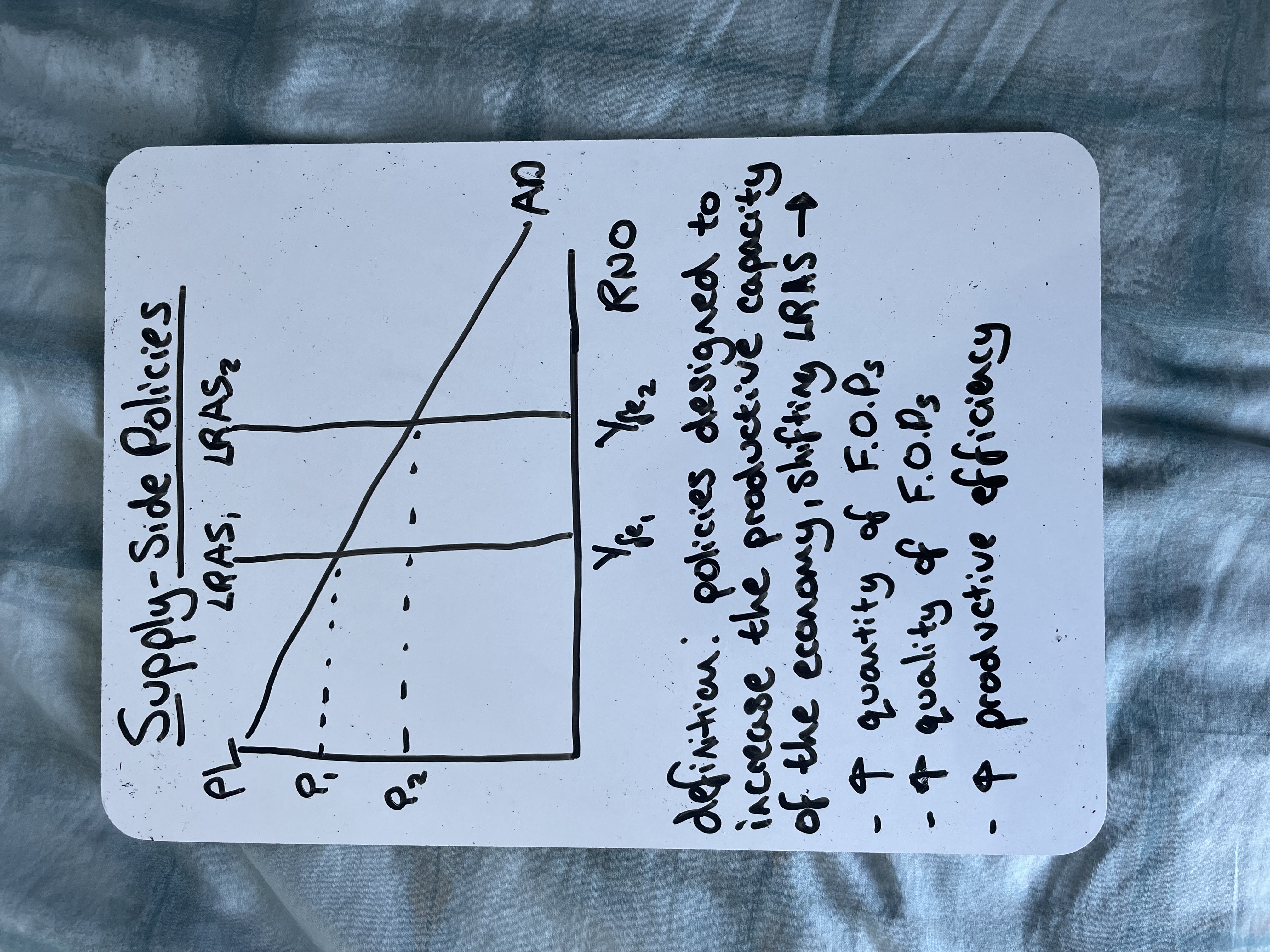13.2 Supply Side Policies
1/23
There's no tags or description
Looks like no tags are added yet.
Name | Mastery | Learn | Test | Matching | Spaced | Call with Kai |
|---|
No study sessions yet.
24 Terms
What are supply-side policies
Government measures designed to increase long-run productive potential of the economy by improving efficiency and productivity of markets
What are supply-side improvements
Increases in productive potential arising from the private sector without government intervention
Draw effects of a supply-side policy on a diagram

How can tax cuts act as a supply-side policy
They increase incentives for work and investment, boosting productivity and potential output
How does deregulation promote supply-side improvements
It reduces barriers to entry, encouraging competition and innovation, which improves efficiency and productivity
How do education and training policies help achieve supply-side improvements
By improving worker skills and productivity, leading to higher output and economic growth
How does infrastructure spending contribute to supply-side improvements
Improved infrastructure enhances efficiency and connectivity, supporting higher economic output
How do income tax cuts increase potential output
By increasing incentives to work, they may raise labour supply and productivity
How do corporation tax cuts promote economic growth
They encourage investment in capital and innovation, enhancing productive capacity
How do supply-side policies reduce structural unemployment
By improving education, training, and labour market flexibility
How can supply-side policies reduce inflationary pressure
By increasing productive capacity, they shift the LRAS curve right, reducing cost-push inflation and demand-pull inflation
How do supply-side policies affect the current account of the balance of payments
By improving productivity and competitiveness, they can increase exports and reduce the trade deficit
How can education and training reduce the natural rate of unemployment
By increasing employability and reducing skill mismatches in the labour market
What are free market supply side policies
Policies that reduce govt intervention and allow market forces to operate freely (e.g. deregulation and privatisation)
How do tax cuts promote free market supply-side outcomes
By incentivising work, investment and innovation, which boosts productivity
How does deregulation improve economic efficiency
It increases competition and removes unnecessary restrictions on business
What is the role of privatisation in free market supply-side policy
It transfers ownership to the private sector, which may operate more efficiently due to profit motives
How do labour market reforms (e.g., reducing NMW) promote efficiency
The allow wages to be set by supply and demand, potentially increasing employments and flexibility
What are interventionist supply-side policies
Policies where the government actively intervenes to improve economic performance
Why is spending on healthcare considered a supply-side policy?
Healthier workers are more productive, reducing absence and increasing output
How can infrastructure spending improve long-run economic performance
It lowers transport and communication costs, increasing business efficiency and ouptut
How does industrial policy (e.g. subsidies for R&D) support supply-side improvements
It encourages innovation and technological advancement, raising productivity
What are some macroeconomic effects of supply-side policies
Higher potential output, lower unemployment, improved competitiveness and reduce inflationary pressure
What are some microeconomic effects of supply-side policies
Increased efficiency, improved productivity, enhanced competition and better resource allocation